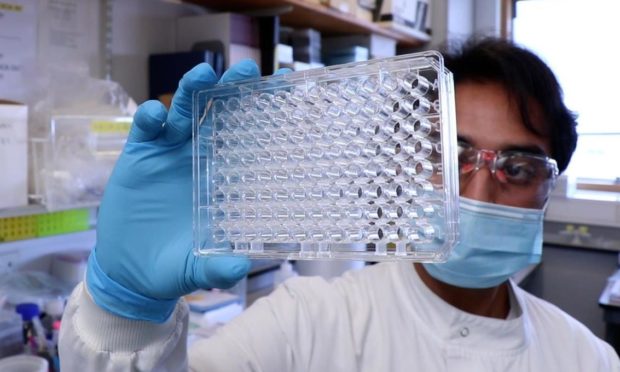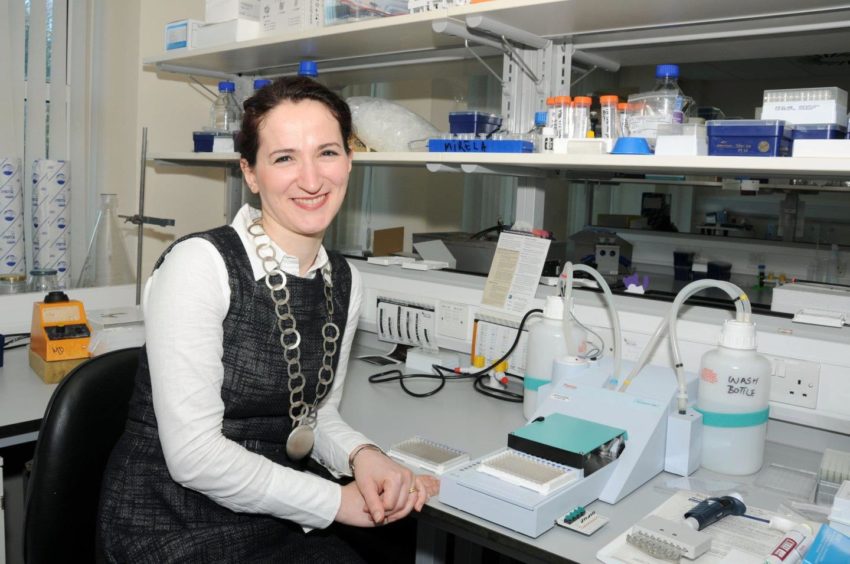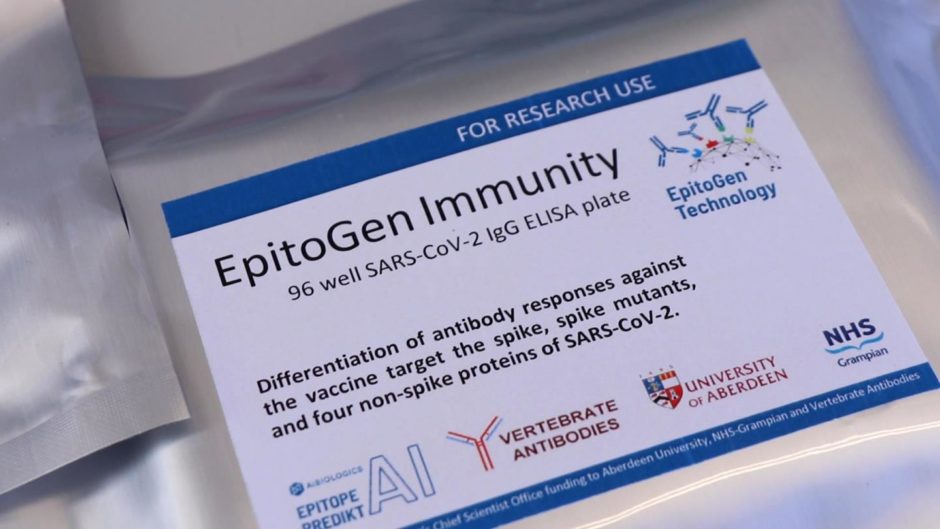A new antibody test developed by Aberdeen University can be used to detect whether someone has been exposed to new variants of Covid-19.
Scientists have created a test that can detect antibody response with more than 98% accuracy and 100% specificity.
Current tests are only around 60-93% accurate.
They can also assess the long-term immunity of an individual, and whether it is the result of vaccination or of previous exposure to the virus.
This information is vital in stopping the spread of the virus, especially with the prevalence of the new Alpha and Delta variants in communities.
Current tests give no indication of how effective vaccinations are with emerging mutations of coronavirus, but this new test can.
The test has been developed by the university in collaboration with biotechnology group Vertebrate Antibodies Ltd and NHS Grampian.
Professor Mirela Delibegovic, from the university, is the lead on the project.
She said: “Accurate antibody tests will become increasingly important in the management of the pandemic and this is a truly game-changing technology with the potential to dramatically change the trajectory of global recovery from the pandemic.
“As the virus mutates, existing antibody tests will become even less accurate, hence the urgent need for a novel approach to incorporate mutant strains into the test – this is exactly what we have achieved.”
The new tests use Epitogen technology to enhance their sensitivity, meaning they can detect new strains better than existing tests.
This technology could be also be used in diagnostic tests for infectious and auto-immune diseases such as Type 1 Diabetes.
Dr Brittain-Long, consultant in infectious diseases in NHS Grampian and a member of the research team, said: “This new testing platform adds crucial sensitivity and specificity to the current available serology tests and has the potential to monitor individual and population-based immunity in a way that has not been possible before.
“In my work I have experienced first-hand the detrimental effects this virus can have on people, and I am very excited to add another tool in the toolbox to fight this pandemic.”
Discussions are already under way surrounding a roll-out of the tests to the NHS.












